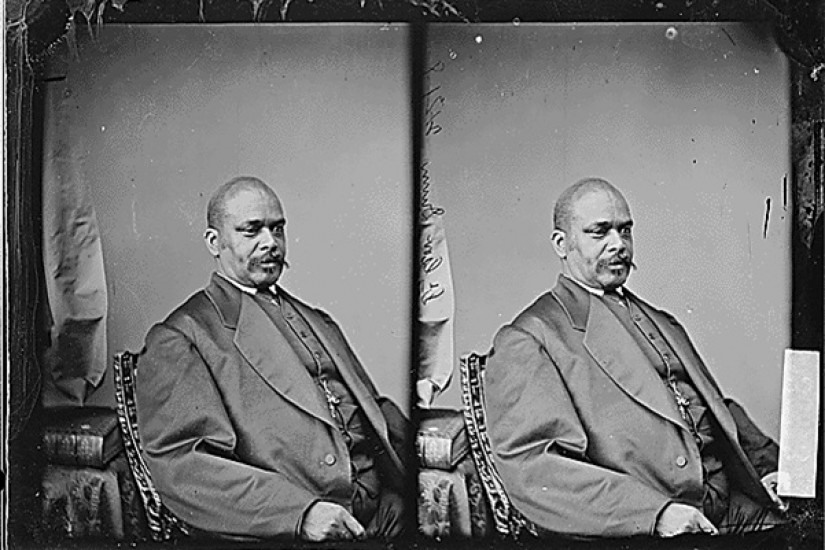“As a child, I’d spend my days after school with my great-grandmother, and she’d tell family stories,” Brian told me. “And family stories always sort of lead to important patriarchs or matriarchs in the family. And I’m a distant relative to Oscar James Dunn.”
Dunn is Brian’s great great great-uncle. So his family talks about Dunn, and then Brian goes to elementary school.
“It was back in 1976,” Brian said. “And the teacher asked if anyone was related to anyone in Louisiana history that was famous. And I said, ‘I'm related Oscar James Dunn.’ And she said, ‘Well, who's that?’ And I said, ‘Well, he's the first black Lieutenant Governor, not just for Louisiana, but for the entire nation.’ And she said, ‘There's never been a black Lieutenant Governor in Louisiana.’”
And eight-year-old Brian is like, yeah there was.
And what’s even crazier is that this man, Oscar James Dunn, is not only the first black Lieutenant Governor in the U.S., he is born a slave.
Brian told me, “Dunn was born in New Orleans about 1822. He was born to a slave mother.”
Dunn’s mom falls in love with a free man of color named James Dunn, who buys her and her two kids for $800. So Dunn turns 11, and he’s free.
“That changes Dunn's life forever, Brian said. “It changes him from a slave to being a free person of color.”
Now Dunn can go to school, and he’s good at school. And he learns a trade—plastering—and he’s good at that too. He grows up and becomes the head of the black Masonic Lodges for Louisiana. Then, the Civil War ends and Reconstruction begins.
“African Americans are all over the South,” Brian said. “They're released and people need their labor for agriculture. So he [Dunn] opens an office and what he does there is write contracts for the recently released slaves, so they can work on plantations and not be cheated.”
Basically, Dunn tries to make sure newly free people actually get paid for their labor by writing those contracts. And no surprise, he’s good at that too, which has people around Dunn telling him he’d make a good politician. Because, people of color, mainly those who were free prior to emancipation (like Dunn), are now entering politics. So Dunn runs for office and gets elected.
